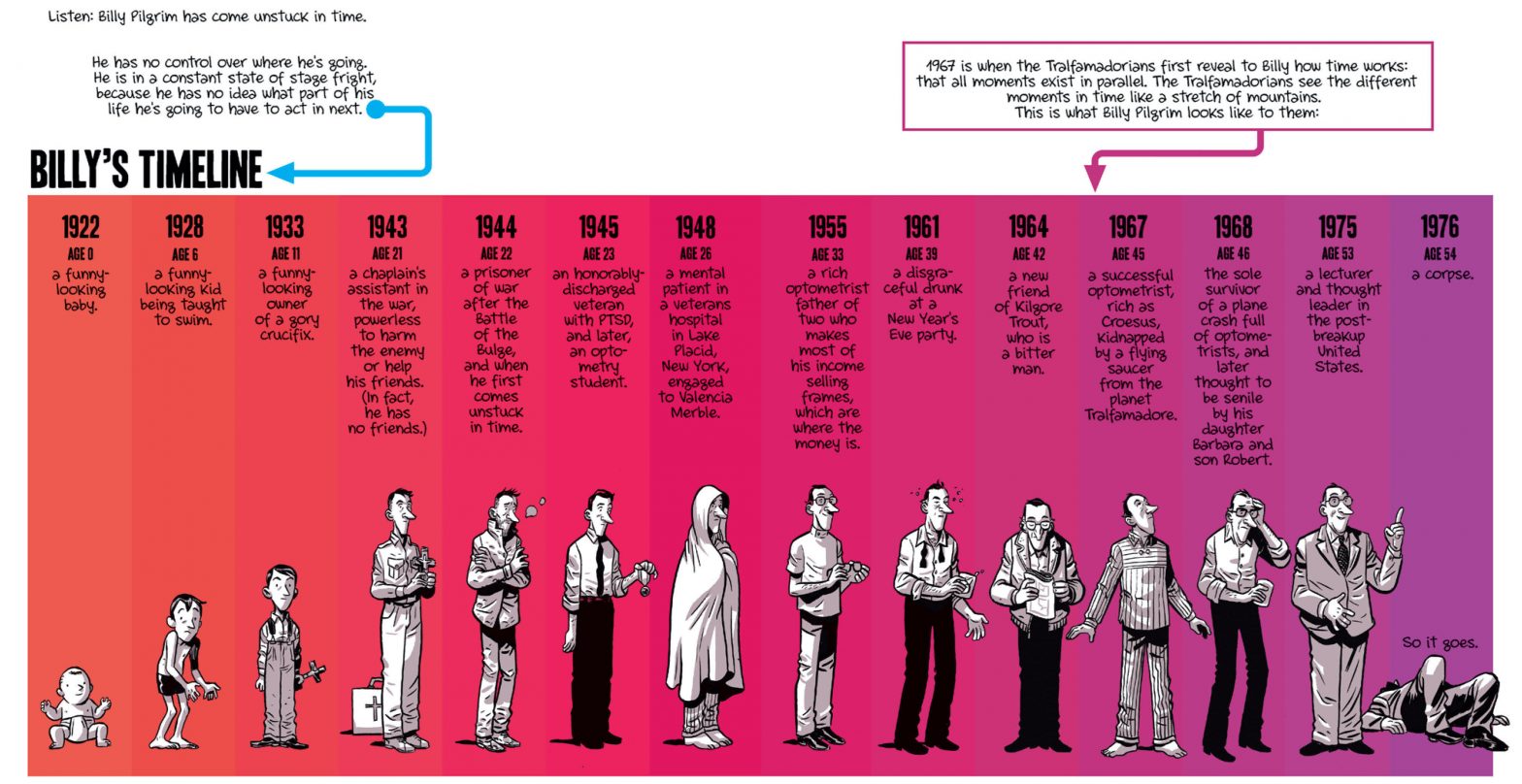Slaughterhouse-Five is a novel that tackles the experience and memories of someone who is a wholly unreliable narrator. Whether the events of the story transpire in the fictional world, or whether they are created as a coping mechanism is a deduction that the reader has to make. The memories of the protagonist, and how they experienced it, are the main avenues for analysis. Throughout the story, Billy Pilgrim experiences his life out of order, and has extraterrestrial interactions. His unchronological life began during WWII, where he was a musician for the military. From there, both randomly and intentionally, he had been able to travel both forward and backward in time to many different events of his life. Experiencing life as he had, Billy’s ideas of time, and his memories concerning his own life, are totally unique and interesting. Whether or not the encounters with aliens are true or not, the effects of his beliefs that they had happened are. Likewise, both his emotions and his outlook on life are different after as compared to before. From the beginning of the story the distinction between what is and what is not is completely arbitrary. “All this happened, more or less. The war parts, anyway, are pretty much true” (Vonnegut 1). Our adventure through the life of Billy Pilgrim has no distinction of reality and fiction, and the purpose of the story is not to create one, or make one apparent. The beauty of this piece is that it relays the story as it was experienced, lacking embellishment for a candid tale. This is truly how we, as people, experience things, much like the way the story is told. We often doddle through life, only acknowledging moments after the fact, without any rising action or climax throughout. Only in death do we fully appreciate life. So it goes.
Source:
Vonnegut, Kurt. Slaughterhouse 5. Vintage UK, 2021.
